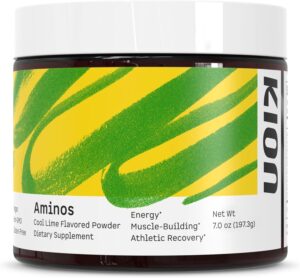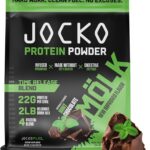
The Role of Nutrition in Healing Spine Problems

“The Role of Nutrition in Healing Spine Problems” is the title of the video you’re about to watch. In this episode, TotalPhysicalTherapy’s Degenerative Disc Disease series dives into the topic of nutrition and its crucial role in healing spine problems. It highlights the fact that individuals with chronic spine complications often receive insufficient nutrition, which can have negative effects on their overall spine health. The video also emphasizes the importance of a well-balanced diet for daily well-being and long-term health, as nutrition choices can significantly impact the health of spinal discs. By developing healthy nutrition habits, you can actively maintain and improve your spinal health. The video provides a comprehensive overview of the role of nutrition in spine health and offers important insights into maintaining healthy discs.
SOURCE: #TotalPhysicalTherapy on YouTube
Importance of Nutrition in Healing Spine Problems

Introduction
Proper nutrition plays a crucial role in maintaining the health of the spine and aiding in the healing of spine problems. In this article, we will explore the role of nutrition in spinal health and discuss the various factors that can affect the health of spinal discs. Additionally, we will provide recommendations for a nutrient-rich diet that promotes spinal health.
The Role of Nutrition in Spinal Health
Nutrition is essential for the overall well-being of our bodies and is especially important when it comes to healing spine problems. Spinal discs, which are the largest avascular tissue in the body, obtain their nutrition through gas exchange. Unlike other tissues that have a direct blood supply, spinal discs rely on nutrient exchange through the end plate. This process allows for the delivery of essential nutrients required for maintaining the health of the discs.
Nutrient Exchange in Spinal Discs
Spinal discs receive nutrients through a gas exchange process facilitated by the end plate. The end plate, which is a thin layer of bone and cartilage, allows for the diffusion of gases from the vertebral body into the disc. Through this exchange, nutrients are transported to the cells of the disc, which in turn maintain a healthy environment within the disc.
Factors Affecting Nutrient Exchange
Several factors can affect the exchange of nutrients in spinal discs. One such factor is the blood supply to the discs. Conditions such as arterial diseases and sclerotic bony lesions can impede the flow of nutrients, leading to complications in the discs. Aging also plays a role in nutrient exchange, as the density and integrity of capillary beds decrease over time. Weight is another factor that can impact nutrient exchange, with higher body mass index (BMI) increasing the likelihood of degenerative changes in the spine.
Factors Affecting Spinal Disc Health
Various factors can influence the health of spinal discs. Aging is a natural process that affects the density of capillary beds, which in turn reduces the flow of nutrients to the discs. Additionally, weight can play a significant role, as an increased BMI increases the chances of degenerative changes in the spine. Exercise, on the other hand, can positively impact nutrient transport to the discs by enhancing microcirculation and blood supply. Metabolism and pH balance also affect disc health, as an abnormal relationship between glucose breakdown and lactic acid production can lead to a decrease in pH and encourage cell death. It is important to note that poor nutrition can have detrimental effects on spinal discs, further emphasizing the importance of a well-balanced diet.
Recommended Nutrition for Spinal Health
To promote spinal health, it is recommended to focus on consuming whole foods. Whole foods provide a wide range of essential nutrients, including vitamins, minerals, antioxidants, and fiber. Incorporating whole grains into the diet is also beneficial for spinal health, as they provide nutrients such as magnesium and vitamin B6, which have been shown to support disc health. Plant-based diets, which emphasize fruits, vegetables, and legumes, can also contribute to overall health and provide the necessary nutrients for spinal health.
Developing Healthy Nutrition Habits
Developing healthy nutrition habits is crucial for maintaining spinal health. It is important to prioritize whole, nutrient-rich foods and incorporate them into your daily diet. Planning meals ahead of time and eliminating processed foods can help ensure that you are obtaining the necessary nutrients for your spine’s well-being. Consulting with a healthcare professional or a registered dietitian can also aid in developing a personalized nutrition plan that caters to your specific needs.
Conclusion
In conclusion, nutrition plays a vital role in healing spine problems and maintaining spinal health. Spinal discs rely on gas exchange through the end plate for nutrient delivery, making adequate nutrition crucial. Factors such as aging, weight, exercise, metabolism, and pH balance can all influence the health of spinal discs. To promote spinal health, it is recommended to consume whole foods, whole grains, and adopt a plant-based diet. Developing healthy nutrition habits is essential for long-term spinal health and overall well-being. SOURCE:
#TotalPhysicalTherapy on YouTube























